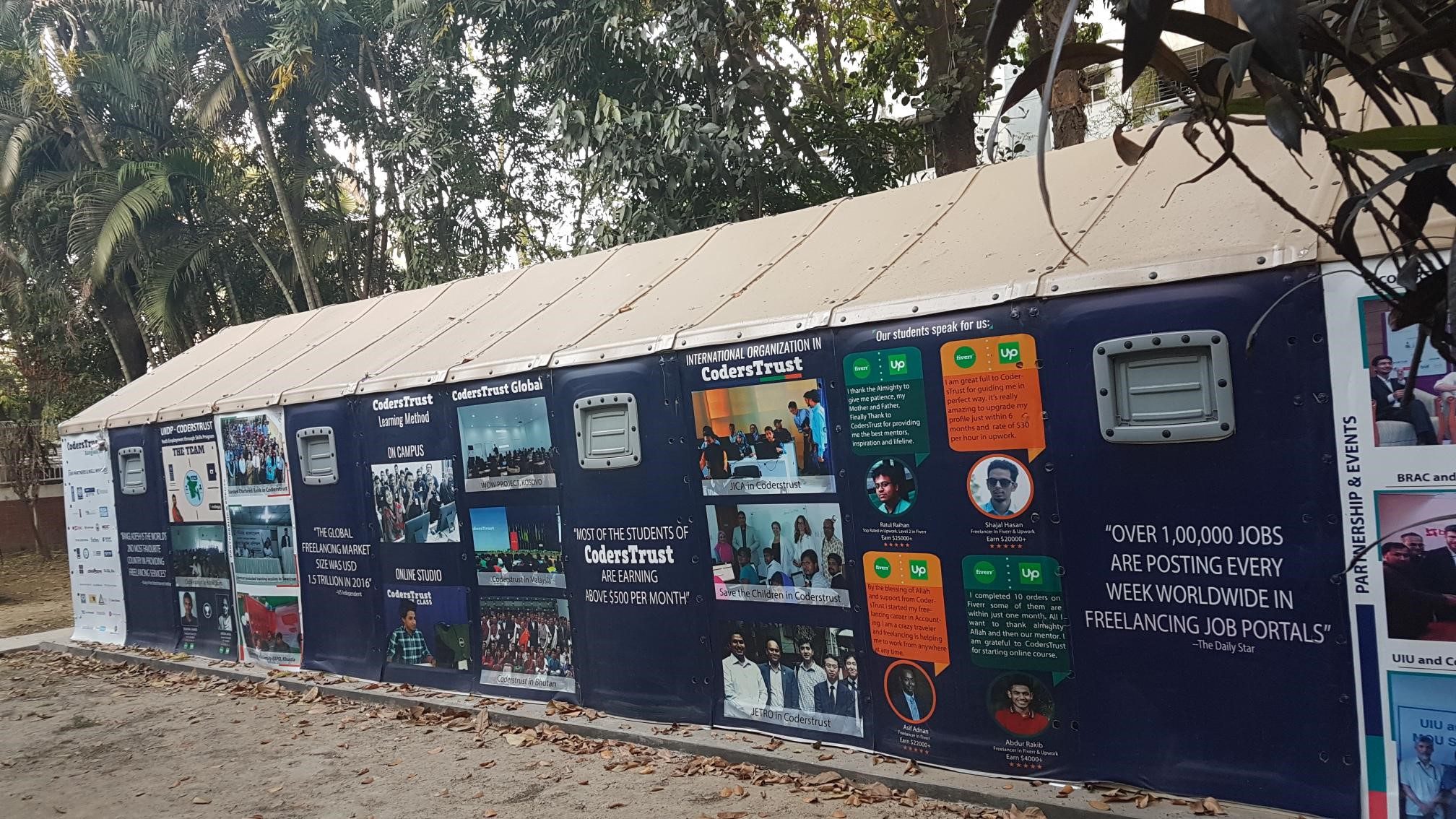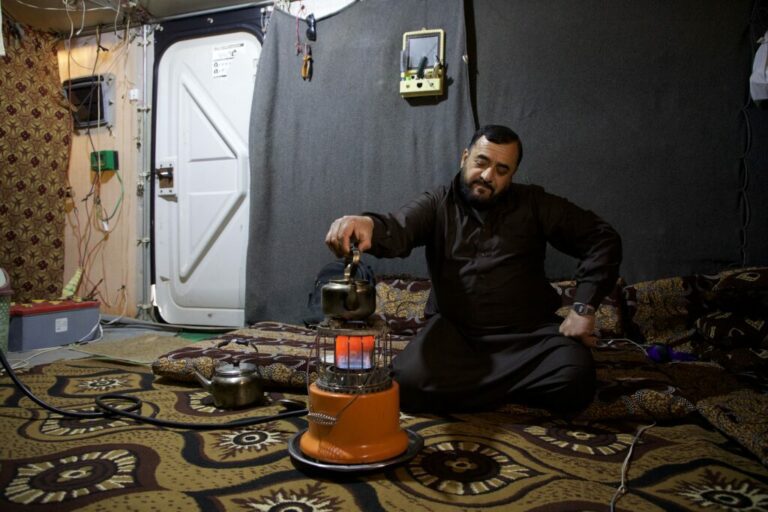The online IT education platform CodersTrust has joined forces with the United Nations Development Programme (UNDP) to create a pilot program to teach young Bangladeshis the technical coding, communication and freelancing skills they need start earning a living in the international digital freelance marketplace.
Better Shelter has donated two shelters to the project and will also provide implementing personnel with the training they need to erect the structures.
With this support from Better Shelter, CodersTrust and UNDP plan to enable 100 000 students to become IT freelancers, by providing them with access to education and finance. In order to achieve this they will launch a mobile classroom pilot for 360 students in the Narail district of Bangladesh. The pilot will evaluate the suitability of Better Shelter units as mobile classrooms. The buildings will be fully equipped with desks, chairs, computers and Internet access.
The Bangladeshi youth unemployment rate is high, at 9.2%. Furthermore, 83% of young people in the country with jobs are underemployed. The aim of the CodersTrust Learn & Earn program is to train students in programming, giving them skills that could earn them up to US$ 500 per month – almost 10 times the national median monthly income.
CodersTrust and UNDP have devised a five month ‘Learn and Earn’ program for Bangladeshi students which provides them with world-class content, one-to-one mentoring and peer-to-peer online learning, as well as offering the chance to work on real, paid assignments. In addition, the students will learn how to boost their confidence and gain the communication, negotiation and presentation skills they need to compete in international markets.
As part of the pilot program, UNDP and CodersTrust have launched a fundraising campaign which aims to raise US$ 54,000. That will cover the costs of equipping the mobile classroom units, as well as funding the Learn and Earn program.
The pilot program will be rolled out this autumn, with the 186 mobile classrooms being introduced incrementally over a period of two and a half years. Locations will be selected according to criteria including previous experience of working in particular areas, the proximity of current and potential business partners, the need for poverty reduction, quality of governance, population levels and suitability of infrastructure.




